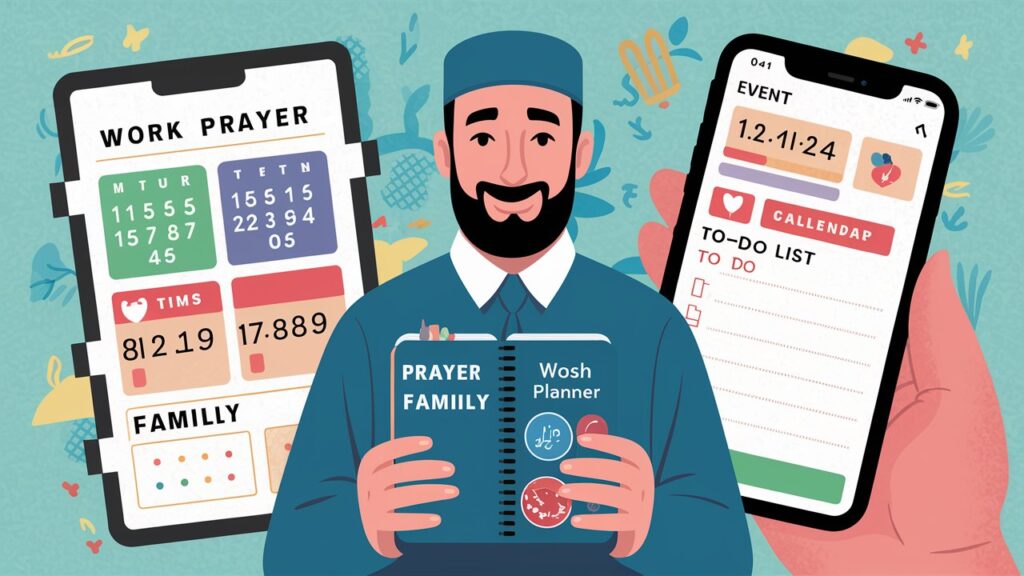
Finding Balance: Work-Life Harmony through Islamic Principles
Introduction:
Juggling work demands with your faith and family obligations can feel overwhelming. Working Muslims in the West, especially, might find themselves struggling to achieve a healthy work-life balance. However, Islam offers invaluable guidance on work ethic, time management, and achieving inner peace. By integrating these principles into our daily lives, we can navigate demanding work schedules while prioritizing our spiritual and personal well-being.
The Islamic Perspective on Work:
The Quran emphasizes the importance of diligence and a strong work ethic. Surah Al-Baqarah (2:281) states, “And [know that] whatever you do of good – Allah is fully Aware of it.” Hard work is valued in Islam, seen as a form of worship when done with the right intention and fulfilling one’s obligations. However, the Quran also reminds us in Surah Ash-Shuara (26:183), “Do not neglect your portion of this world…” Finding balance is key.
Prioritizing Prayer and Family:

Muslims are obligated to perform five daily prayers at specific times. Balancing these prayers with a busy work schedule requires time management skills. Consider utilizing breaks or scheduling prayer times during less demanding periods. Family is another cornerstone of Islam. The Prophet Muhammad (PBUH) emphasized the importance of spending quality time with loved ones. Maintaining open communication and dedicating time for family meals or activities fosters strong relationships despite work commitments.
Community Involvement and Self-Care:
Active participation in the Muslim community strengthens our faith and sense of belonging. However, neglecting self-care can lead to burnout. Schedule time for activities that bring you joy and promote relaxation, whether it’s reading Quran, spending time in nature, or pursuing hobbies. A well-rested and rejuvenated individual is better equipped to fulfill their responsibilities at work and in their personal life.
Practical Tips for Busy Muslims:

- Plan and prioritize: Create a daily or weekly schedule outlining work tasks, prayer times, and dedicated family time.
- Communicate openly: Discuss work-life balance with your employer and colleagues. Explore flexible work arrangements or time management strategies if needed.
- Delegate and utilize technology: Consider delegating tasks where possible and utilize technology to streamline processes.
- Seek support: Don’t hesitate to seek support from family, friends, or community leaders in managing your workload and maintaining a healthy balance.
Conclusion:
Finding work-life harmony is a continuous journey. By integrating Islamic principles into your daily routine, prioritizing your faith and well-being, and utilizing practical tools, you can achieve a sustainable and fulfilling lifestyle. Remember, a balanced life allows you to be a more productive employee, a devoted family member, and a contributing member of your community – all while pleasing Allah (SWT).
